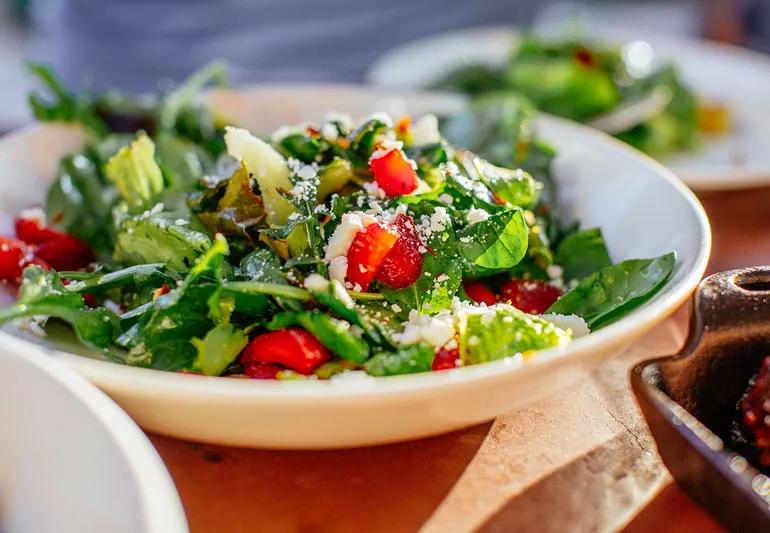The short answer from a registered dietitian

Image content: This image is available to view online.
View image online (https://assets.clevelandclinic.org/transform/a1af4124-f0e7-4221-be54-fadbd262e8f6/mediterraneanDietCheese-1005741226-770x533-1_jpg)
mediterranean Diet with a small bit of cheese
A: The Mediterranean Diet is an evidence-backed diet that almost anyone can follow to improve their health. It emphasizes fresh fruits, vegetables, whole grains and healthy fats. It does include meat and dairy, but in smaller amounts than the standard American diet.
Advertisement
Cleveland Clinic is a non-profit academic medical center. Advertising on our site helps support our mission. We do not endorse non-Cleveland Clinic products or services. Policy
When it comes to dairy, a traditional Mediterranean diet might include a few servings a week of cheese or yogurt. Opt for less processed dairy products – think flavorful cheeses like Parmesan, feta or part-skim mozzarella instead of processed American slices, and plain Greek yogurt instead of high-sugar flavored varieties.
As for ice cream, you can make it an occasional treat, but keep portion size and frequency at a minimum. Or consider an all-fruit sorbet or gelato, which is a very rich Italian-style ice cream. A little goes a long way.
Milk is not traditionally part of a Mediterranean diet. If you’re new to this way of eating and are struggling to cut down your dairy, you can substitute it with unsweetened almond or soy milk, since nuts and legumes are staples of the diet.
— Dietitian Julia Zumpano, RD, LD
Advertisement

Sign up for our Health Essentials emails for expert guidance on nutrition, fitness, sleep, skin care and more.
Learn more about our editorial process.
Advertisement
Alternating between periods of eating and fasting may benefit your health
This plant-based eating plan focuses on lowering cholesterol, making it a great companion to the Mediterranean diet
Choose foods that are low in fiber and easy to chew and swallow
The flexible eating plan aims to boost your brain health by focusing on plant-based foods and limiting saturated fat
Designed to lower your blood pressure, this eating plan focuses on heart-healthy foods like whole grains, fruits and vegetables
Pescatarians don’t eat poultry, game or red meat, but they do eat fish and seafood, dairy and eggs
This eating style has many health benefits, including weight loss, an improved microbiome, and increased nutrient and mineral consumption
Research shows promising results from options like the DASH diet and Mediterranean diet
Although it could be used as a moisturizer, this new trend is not recommended
Communicating clear limits helps protect your time, energy and emotional well-being
High cholesterol can be genetic, but testing and treatment can lower your heart disease risk